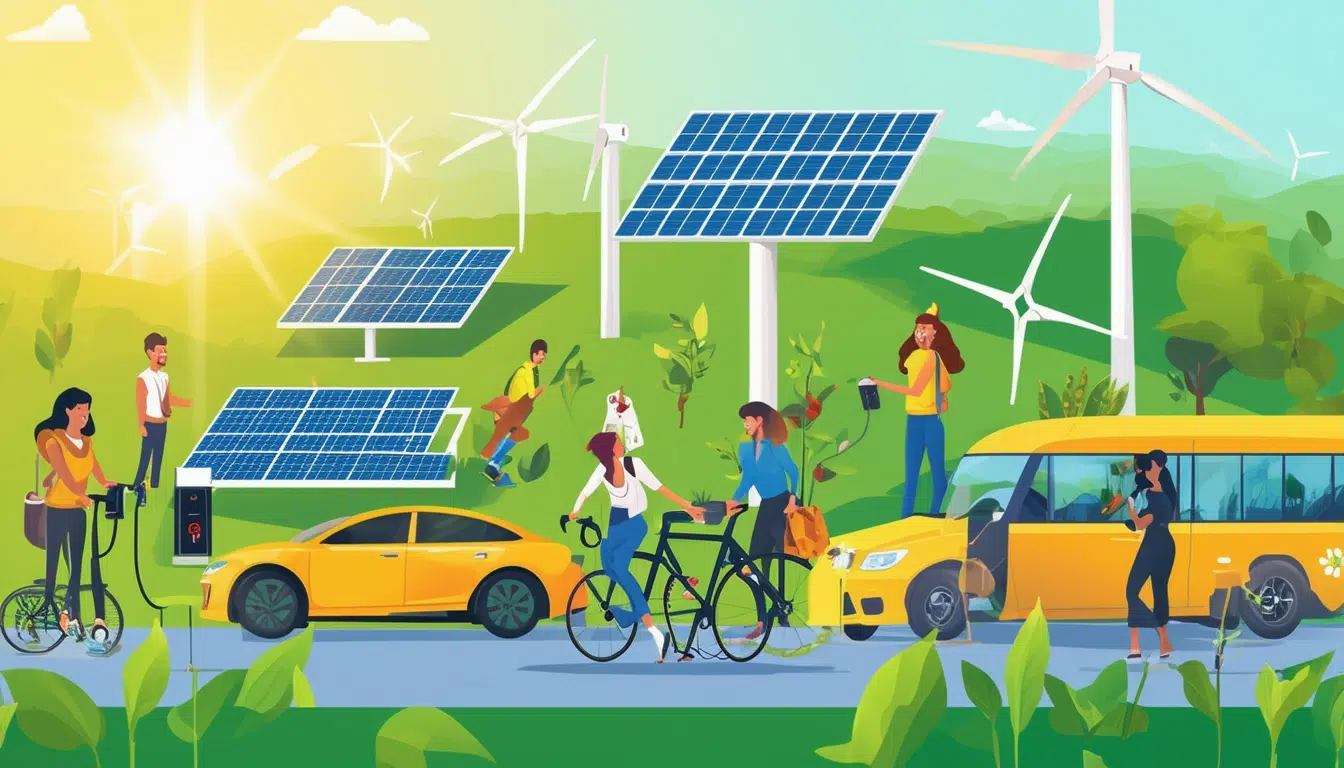Sustainable practices to reduce fuel consumption

The increase in fuel spending is a challenge faced by both businesses and private drivers, impacting not only finances but also the environment. Adopting sustainable practices has become essential to mitigate this problem. From maintaining proper tire pressure to optimizing transport routes, every action counts in reducing fossil fuel consumption. These practices not only contribute to improving energy efficiency but also promote a more responsible lifestyle that is aware of the impact we have on our planet.
The impact of fossil fuel use on the environment is becoming increasingly evident, making the adoption of sustainable practices an urgent necessity. Reducing fuel spending not only helps save money but also contributes to environmental protection. Below is a series of strategies that can be implemented to achieve a more efficient driving and a more responsible use of resources.
Optimization of vehicle maintenance
A well-maintained vehicle is key to maximizing fuel efficiency. Starting by checking tire pressure regularly is fundamental, as incorrect pressure can increase consumption by up to 3% for every 0.3 bars that are missing. Additionally, ensuring that air and fuel filters are clean and that the engine oil is the right type contributes to optimal performance.
Adoption of eco-efficient driving techniques
The way we drive has a significant impact on fuel consumption. To reduce spending, it is advisable to maintain a constant speed and avoid sudden accelerations or abrupt braking. It is also beneficial to anticipate stops and use engine braking instead of braking suddenly, which can save a significant amount of fuel.
Logistical planning and efficient routes
In business environments, route planning is crucial for optimizing fuel use. Implementing route management software can help identify the most efficient way to make deliveries, saving time and money. Moreover, whenever possible, it is advisable to group trips or avoid unnecessary routes to maximize efficiency.
Use of alternative vehicles
The transition to less polluting vehicles is one of the most effective measures to reduce fuel spending. Opting for hybrid or electric models not only decreases dependence on fossil fuels but also reduces operating costs in the long run. For example, the new BMW M electric is a testament to how the industry is responding to this need.
Promotion of renewable energy use
Incorporating renewable energy sources in training or fuel supply can have a significant impact on spending. There are various initiatives that promote the use of biofuels and other alternatives that help reduce the carbon footprint. More information can be found in the article on renewable energies.
Education and awareness about fuel savings
It is fundamental that drivers and employees are informed about the best practices for more sustainable driving. Education surrounding the impact of conscious fuel consumption not only fosters responsible action but can also have a positive effect on corporate culture and the community.
Government and corporate initiatives
Policies and regulations that promote sustainability are essential for driving change. Governments and companies can work together to implement incentives that favor the adoption of clean technologies. For example, recycling and reuse programs also play an important role in reducing fuel spending by fostering a more sustainable lifecycle for products.
Alternative mobility
Finally, promoting the use of transportation alternatives such as bicycles or public transport can drastically reduce dependence on private cars. Every kilometer traveled in these alternative modes reduces fuel consumption and promotes a more sustainable lifestyle. Many cities are improving their infrastructures to facilitate these options, as mentioned in the article on urban planning.
By implementing these and other practices, it is possible not only to save on fuel but also to contribute to a more sustainable and eco-friendly future.
Reducing fuel spending has become an urgent necessity today, both for the environment and the economy. Through sustainable practices, it is possible to optimize consumption, which not only contributes to the protection of the planet but also translates into significant economic savings. Adopting simple yet effective habits can make a considerable difference in fuel consumption.
One of the most effective strategies is to keep tires properly inflated. Proper pressure not only improves safety but can also decrease consumption by up to 3% every time the pressure drops. Additionally, planning travel routes allows for avoiding unnecessary detours, maximizing the efficiency of the fuel used.
Furthermore, it is essential to avoid rapid accelerations and sudden braking, as these actions can significantly increase fuel spending. Driving at a constant speed and adhering to speed limits are also practices that promote more efficient fuel use. Implementing eco-driving helps not only to reduce costs but also to decrease emissions of pollutant gases.
Finally, the use of emerging technologies and alternative fuels, as well as education and awareness about responsible fuel use, are key to fostering a shift towards sustainability. Companies and individuals must recognize the importance of these measures, not only to achieve savings but also to contribute to a cleaner and more sustainable future.



